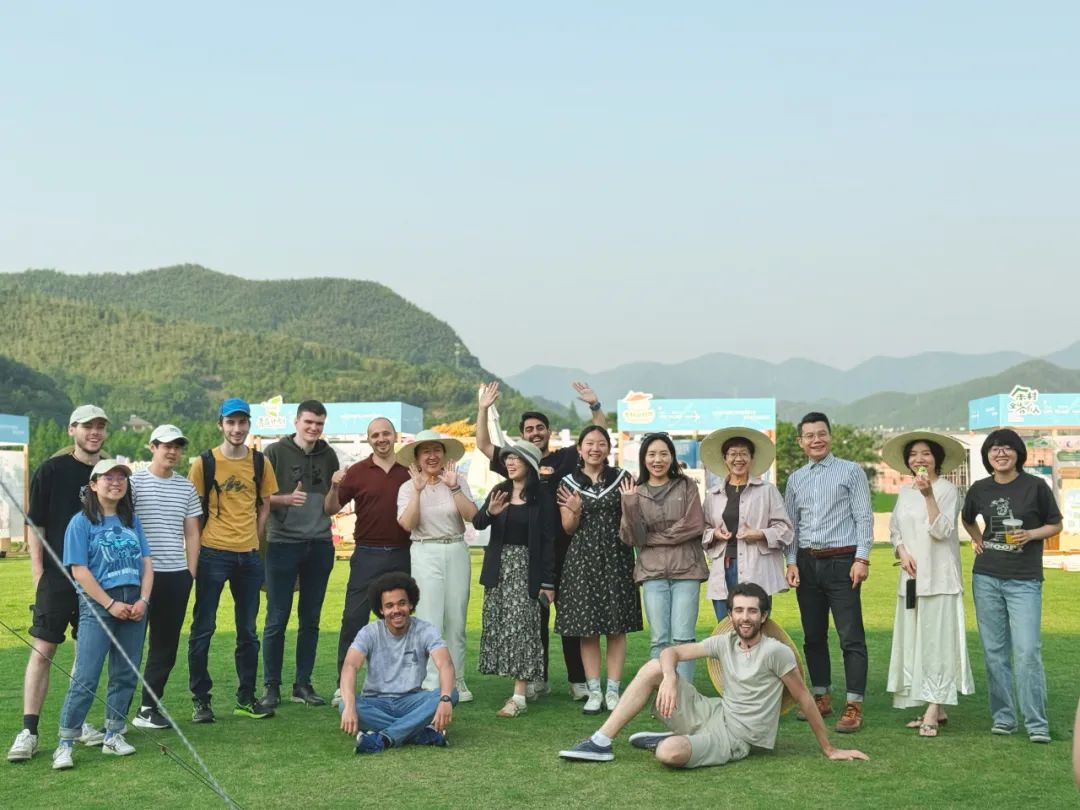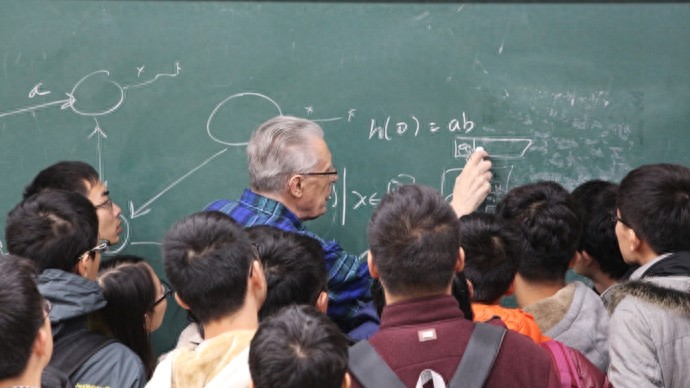
On June 24, world-renowned U.S. computer scientist John Edward Hopcroft, was awarded the People’s Republic of China International Science and Technology Cooperation Award. According to Jiefang Daily and Shangguan News, the 85-year-old foreign academician has spent the majority of each year over the past five years living and working at Shanghai Jiao Tong University (SJTU), where both faculty and students affectionately call him “John.”
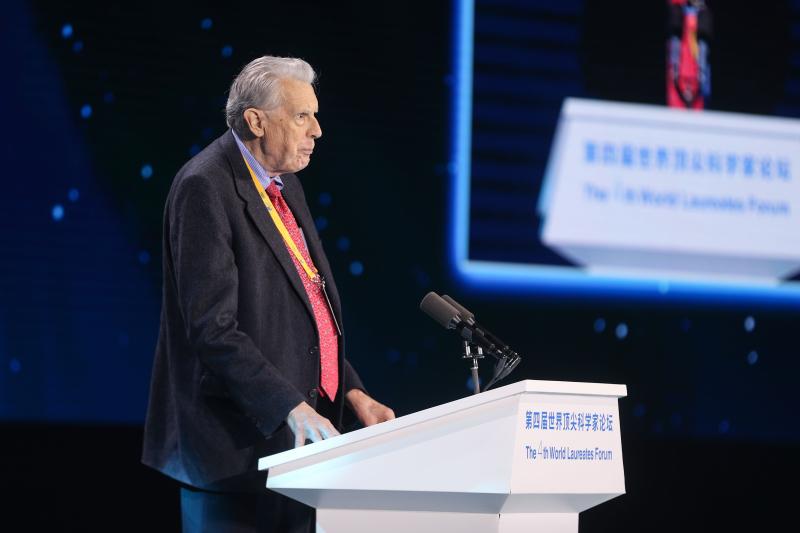
“Talent is evenly distributed around the world, and China has an enormous talent pool. There is a huge need for better educational opportunities. I hope to help more young people realize their dreams,” he said. What began over a decade ago when the Turing Award winner first arrived at SJTU has since evolved into a lasting and meaningful journey.
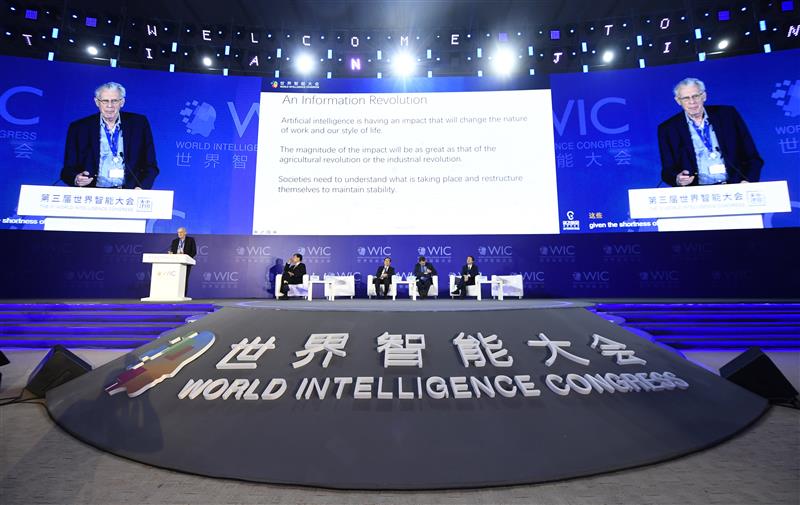
A Pioneer in Theory, A Partner in China’s Academic Growth.
John Hopcroft earned his PhD in Electrical Engineering from Stanford University more than 60 years ago and went on to teach at Princeton before joining Cornell University in 1967. There, he helped establish the Department of Computer Science and Engineering, eventually serving as department chair and Dean of Engineering. Today, he is a Visiting Chair Professor at SJTU and a Foreign Member of the Chinese Academy of Sciences.
Internationally recognized as a founding figure in theoretical computer science, Hopcroft introduced the “worst-case asymptotic analysis” method for evaluating algorithms—now regarded as the gold standard for measuring algorithm performance. In 1986, he received the Turing Award, the highest honor in computer science, for his foundational work in algorithms and data structures.
Hopcroft is also widely respected as an educator. His influential textbooks—Design and Analysis of Algorithms, Formal Languages and Their Relation to Automata, among others—have shaped the learning of generations of students. His academic legacy includes three former PhD students who went on to win the Turing Award, and eight academicians in the U.S., Canada, and beyond.
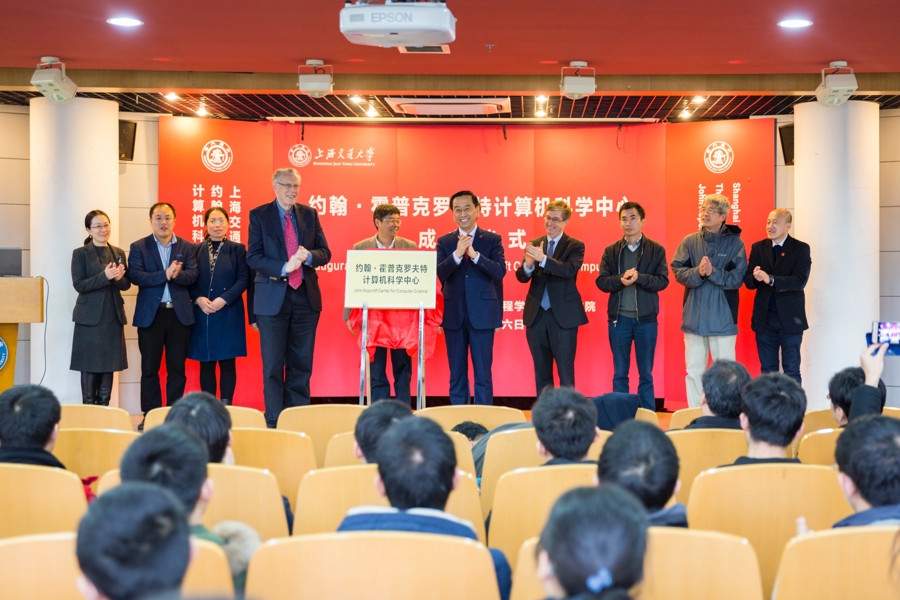
In 2011, at the invitation of then-SJTU President Jie Zhang, Hopcroft began serving as Chief Professor of Computer Science and Special Advisor to the President, marking the start of a deep and ongoing partnership with Chinese higher education. In recent years, he has collaborated closely with Chinese scholars on social network theory, co-defining key concepts like “community,” “hidden community,” and “core community”—concepts that are now fundamental to analyzing large-scale, complex networks. His team also introduced new metrics for measuring similarity in mid-layer representations in the field of neural networks.
Since its establishment in 2017, the John Hopcroft Center for Computer Science at SJTU has recruited 36 exceptional young scholars from top institutions around the world, including those in the U.S., UK, Japan, and Singapore. To date, eight of them have been selected for national-level talent programs in China. According to the global CSRankings, SJTU currently holds the No. 1 spot in Asia for theoretical computer science (2020–2024)—a milestone made possible in part by the Center’s contributions.
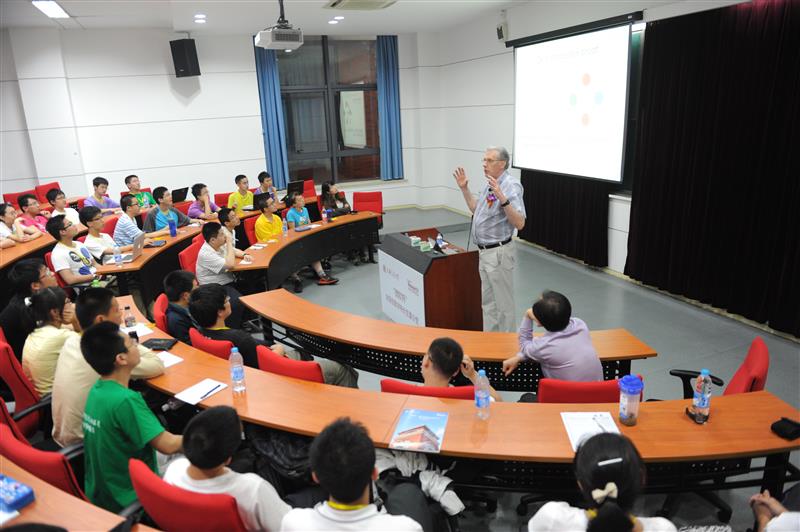
Championing Reform: From "101 Plan" to 600+ Talents Trained
Hopcroft has played a leading role in advancing undergraduate computer science education across China. In December 2021, he helped launch the “101 Plan”, a national initiative aimed at revitalizing 12 core computer science courses. Working alongside fellow Turing Award laureates Manuel Blum and Silvio Micali, Hopcroft elevated the nation’s talent development by bringing together top-tier teaching teams to refine curricula, improve instructional methods, and revamp learning platforms.
With Hopcroft’s guidance, 33 universities—including Peking University, Tsinghua University, and SJTU—came together to contribute to the initiative. More than 400 faculty members collaborated across core computer science subjects. In 2023, the White Paper on Strategic Talent Development in Computer Science, a flagship deliverable of the 101 Plan, was published by Higher Education Press. Since then, the initiative has expanded into other foundational disciplines such as mathematics, physics, and life sciences, sparking a wave of innovation across Chinese academia.
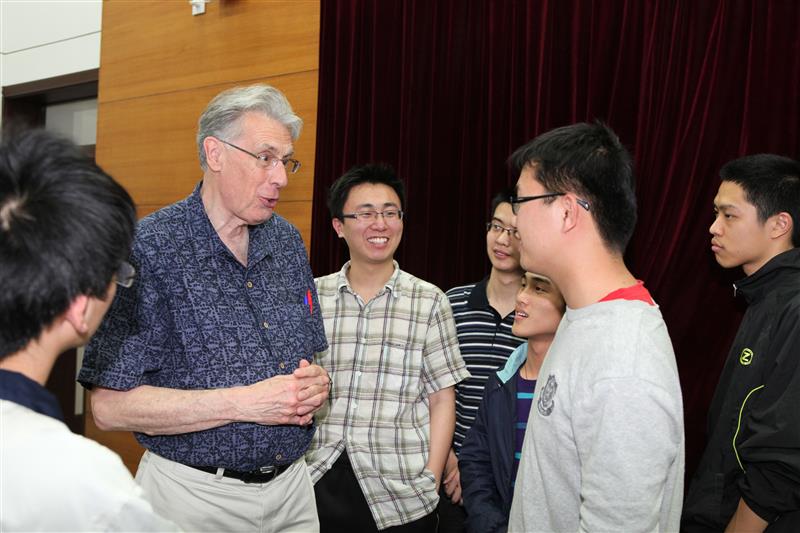
For students at SJTU’s Zhiyuan College, “bumping into a legend” is a regular occurrence. Hopcroft doesn’t just design high-level training programs—he teaches them himself. Over the years, he has delivered 20 courses, totaled 684 teaching hours, and trained nearly 600 top-performing undergraduates. He has also authored and published two textbooks at no cost to students.
Hopcroft has been equally committed to promoting global academic exchange. Thanks to his efforts, more than 20 internationally renowned scholars—including several Turing and Wolf Prize winners—have given lectures or taught advanced courses to SJTU undergraduates. He has also helped send nearly 200 students to Cornell University for coursework and internships, while broadening collaboration into disciplines such as mathematics and chemistry.
A Teacher, A Mentor, A Dreamer—At Home in China
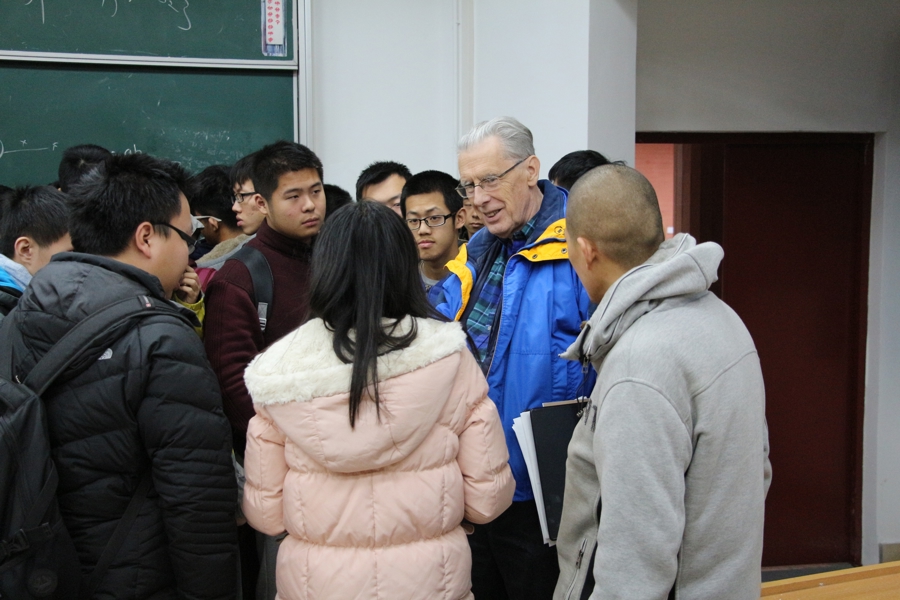
“When I was a freshman, I attended a Q&A session with Professor Hopcroft. He loved sitting with us and having face-to-face conversations,” recalled Tianyu Zhang, a 2021 student from the John Hopcroft Honors Class at Zhiyuan College. “He often guided us on how to plan our academic paths—encouraging us not only to master existing tools and theories, but to dig deeper into their foundations and have the courage to explore uncharted areas of research.”
For Hopcroft, it all comes down to one simple truth: China feels like home.
“I hope I’m still standing at the podium at SJTU when I turn 100,” he said with a smile. “Helping young people achieve their dreams—that’s what keeps me going.”
Cover image: Yuhan Meng
Photography provided by the university
Author: Ruizhe Xu
Source: Jiefang Daily, Shangguan News



